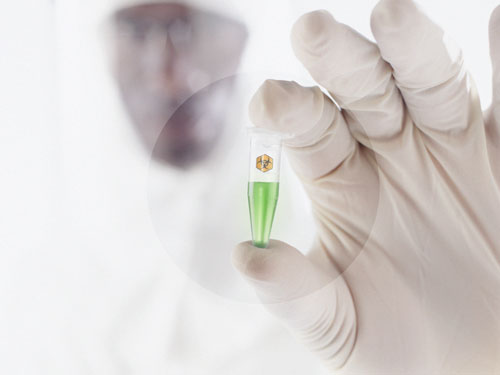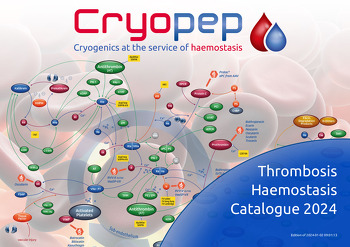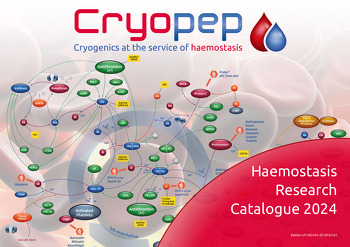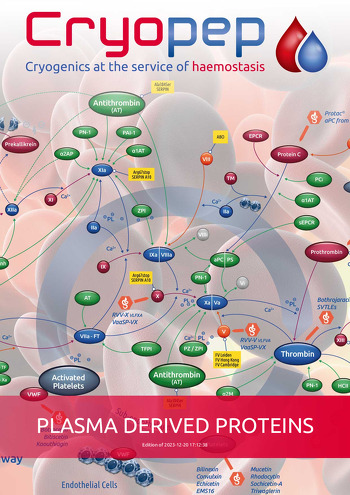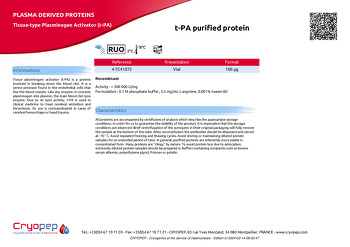Tissue plasminogen activator (t-PA) is a protein involved in breaking down the blood clot. It is a serine protease found in the endothelial cells that line the blood vessels. Like any enzyme, it converts plasminogen into plasmin, the main blood clot lysis enzyme. Due to its lysis activity, t-PA is used in clinical medicine to treat cerebral embolism and thrombosis. Its use is contraindicated in cases of cerebral hemorrhage or head trauma.
All proteins are accompanied by certificates of analysis which describe the appropriate storage conditions. In order for us to guarantee the stability of the product, it is imperative that the storage conditions are observed. Brief centrifugation of the zymogens in their original packaging will fully recover the sample at the bottom of the tube. After reconstitution the antibodies should be aliquoted and stored at -70 ° C. Avoid repeated freezing and thawing cycles. Avoid storing or maintaining diluted protein samples for an extended period of time. In general, purified proteins are inherently more stable in concentrated form. Many proteins are "clingy" by nature. To avoid protein loss due to adsorption, extremely diluted protein samples should be prepared in buffers containing excipients such as bovine serum albumin, polyethylene glycol, Prionex or gelatin.




